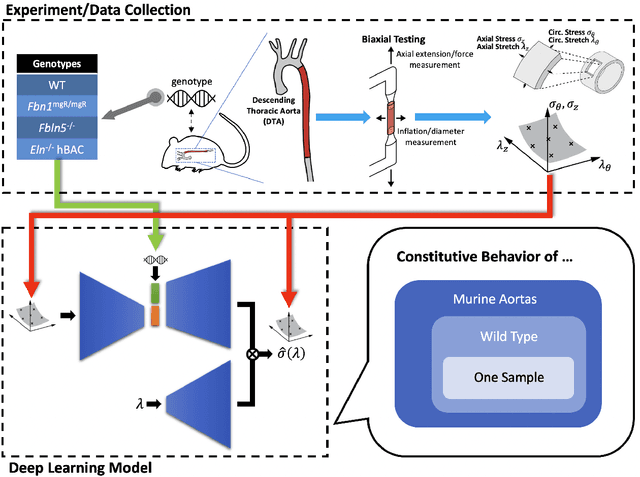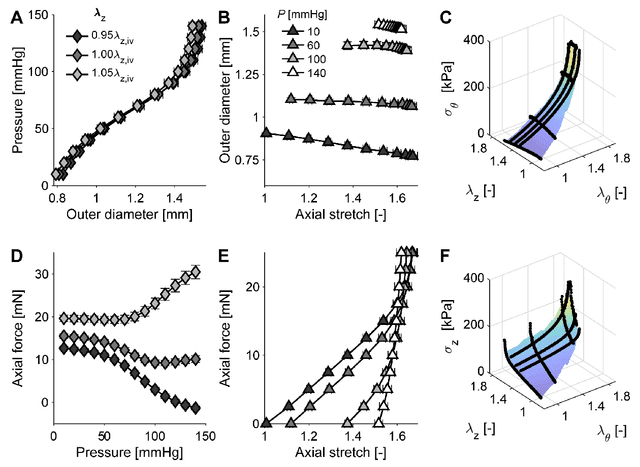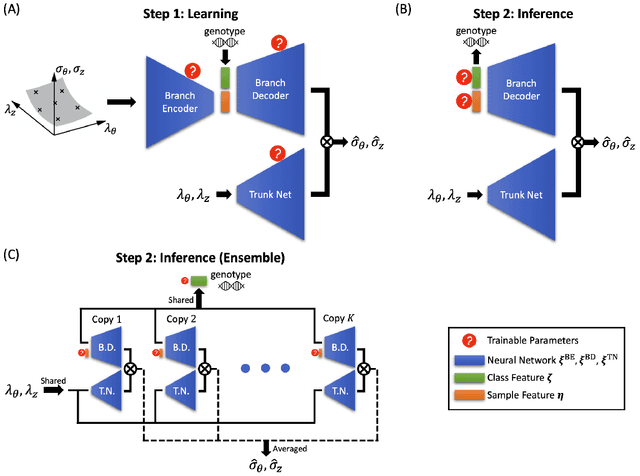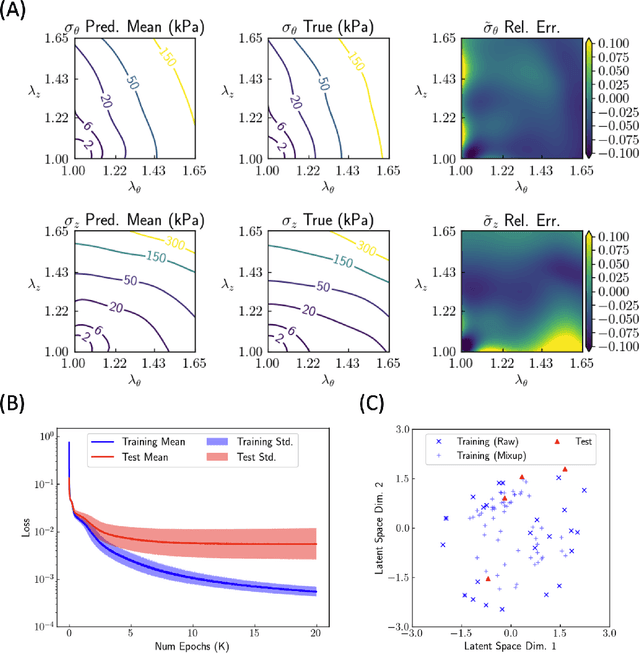Bart Spronck
G2Φnet: Relating Genotype and Biomechanical Phenotype of Tissues with Deep Learning
Aug 21, 2022



Abstract:Many genetic mutations adversely affect the structure and function of load-bearing soft tissues, with clinical sequelae often responsible for disability or death. Parallel advances in genetics and histomechanical characterization provide significant insight into these conditions, but there remains a pressing need to integrate such information. We present a novel genotype-to-biomechanical-phenotype neural network (G2{\Phi}net) for characterizing and classifying biomechanical properties of soft tissues, which serve as important functional readouts of tissue health or disease. We illustrate the utility of our approach by inferring the nonlinear, genotype-dependent constitutive behavior of the aorta for four mouse models involving defects or deficiencies in extracellular constituents. We show that G2{\Phi}net can infer the biomechanical response while simultaneously ascribing the associated genotype correctly by utilizing limited, noisy, and unstructured experimental data. More broadly, G2{\Phi}net provides a powerful method and a paradigm shift for correlating genotype and biomechanical phenotype quantitatively, promising a better understanding of their interplay in biological tissues.
 Add to Chrome
Add to Chrome Add to Firefox
Add to Firefox Add to Edge
Add to Edge